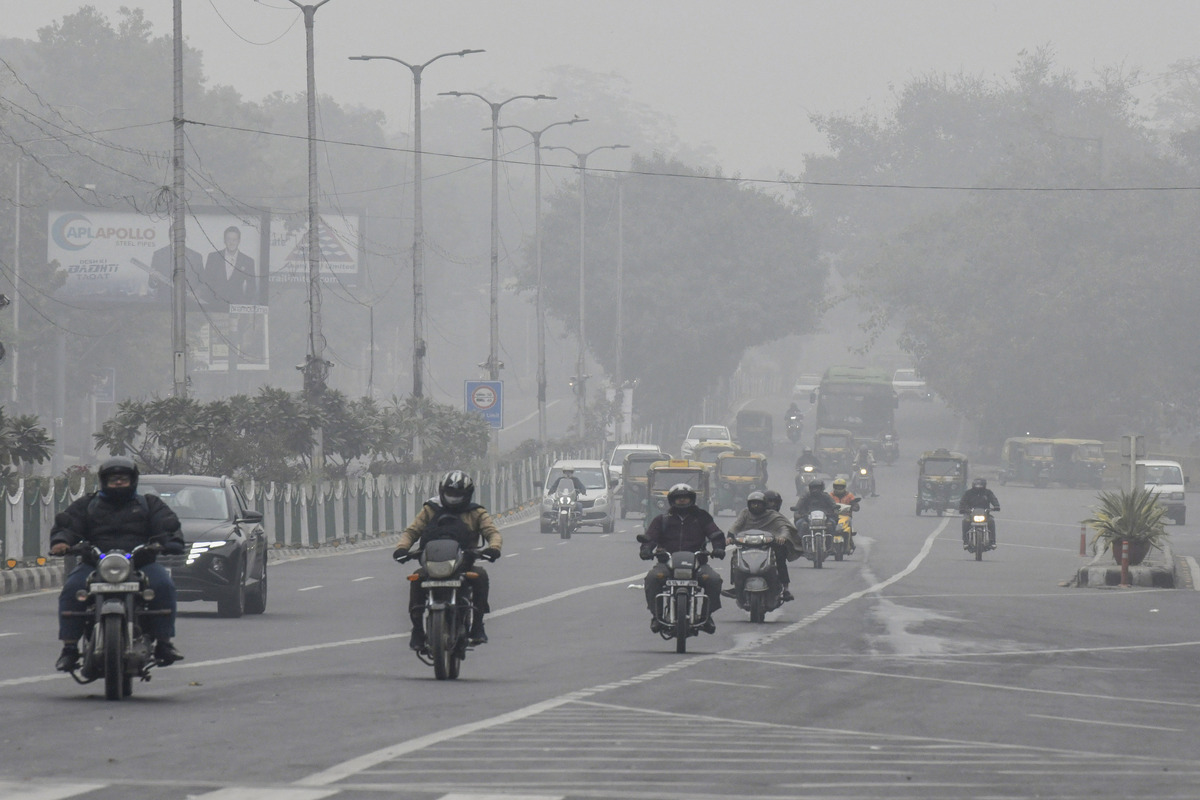Delhi Police conducts verification drive to identify illegal immigrants
To identify illegally staying Bangladeshi nationals, The Delhi Police on Thursday conducted a verification drive in the Sangam Vihar area of Delhi.
Delhi experienced its warmest October this year, with temperatures reaching levels not seen in 73 years, according to the India Meteorological Department (IMD) on Friday.

(ANI Photo/Jitender Gupta)
Delhi experienced its warmest October this year, with temperatures reaching levels not seen in 73 years, according to the India Meteorological Department (IMD) on Friday.
The average maximum temperature in October 2024 was recorded at 35.1 degrees Celsius, and the average minimum temperature stood at 21.2 degrees Celsius at Safdarjung Observatory, Delhi’s premier weather station.
Advertisement
Historically, the maximum temperatures recorded in October were 35.5 degrees Celsius in 1907, 35.0 degrees Celsius in both 1930 and 1938, 35.8 degrees Celsius in 1941, and 36.2 degrees Celsius in 1951.
Advertisement
Alongside the unseasonably warm temperatures, pollution levels in Delhi surged, with a smoky haze reappearing on Friday morning after residents flouted the ban on firecrackers during Diwali celebrations. Most areas of the capital recorded an Air Quality Index (AQI) over 350, raising health concerns.
At the India Gate, where the AQI stood around 317 post-Diwali, a cyclist commented, “Because of the pollution, terrible things are happening. It came on very suddenly this time. Just a few days ago, there was nothing, and now my brother has fallen sick. I used to come here to cycle with him, but he has been severely affected by the pollution lately. And today, the pollution is extreme.”
Around 7 am, Anand Vihar recorded an AQI of 395, Aya Nagar stood at 352, Jahangirpuri at 390, and Dwarka reached 376—each reporting “very poor” air quality, posing significant health risks.
The pollution problem extended beyond Delhi; several cities across India, including major metros like Chennai and Mumbai, reported similar post-Diwali conditions, with smog and poor air quality impacting large areas.
Data from the Central Pollution Control Board (CPCB) highlighted the serious impact of pollution, particularly following the Diwali celebrations, raising concerns about air quality and public health nationwide.
Advertisement